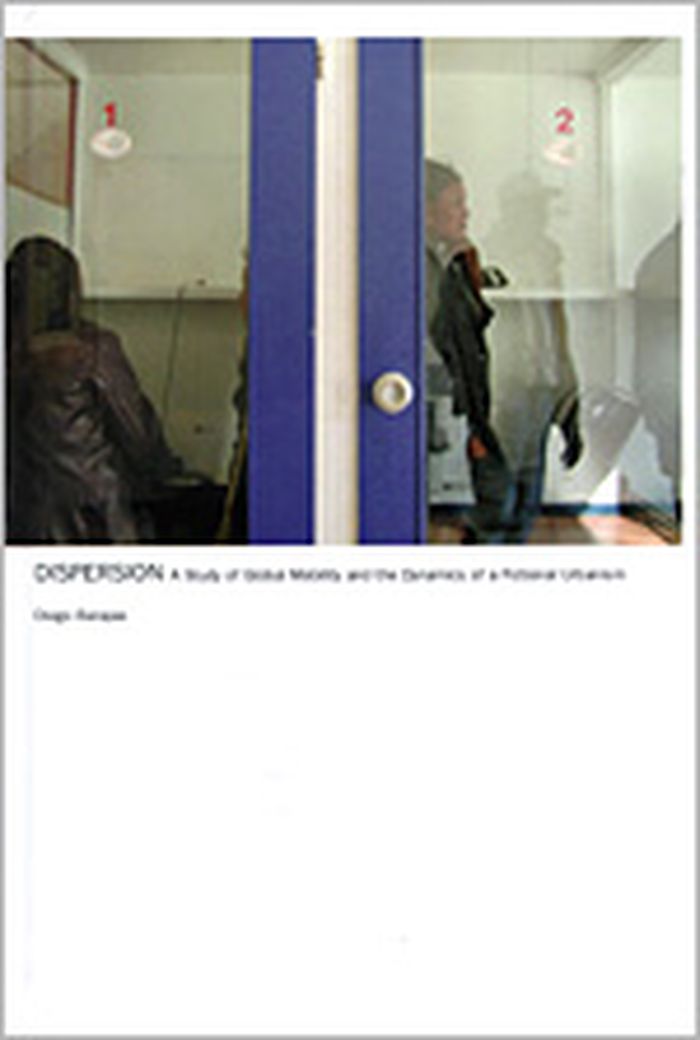$39.95
(available to order)
Summary:
This publication is based on a thesis that studies global mobility and territories in dispersion. Based in Rotterdam, Diego Barajas concentrates his research on the urban dispersals shaped by migration, looking first at the Cape Verdean Diaspora and its territorial structure, and then focused on the case of the 'belhuis' - 'call-house'. By 'territories in dispersion',(...)
Dispersion : a study of global mobility and the dynamics of a fictional urbanism
Actions:
Price:
$39.95
(available to order)
Summary:
This publication is based on a thesis that studies global mobility and territories in dispersion. Based in Rotterdam, Diego Barajas concentrates his research on the urban dispersals shaped by migration, looking first at the Cape Verdean Diaspora and its territorial structure, and then focused on the case of the 'belhuis' - 'call-house'. By 'territories in dispersion', Barajas refers to social habitats that are no longer physically contained in geographically continuous areas, but have been spread out and re-articulated by artificial means. The de-territorialized condition created by increased mobility - particularly by migration - had led to an urbanism of artificial re-territorializaton. This is a functional urbanism - as based on mental constructions but tangible - that is manifested in the city as fragments, micro environments of global circuits, each of which establishes its own identity, time, rules and aesthetics - its own atmospheres. These fragments are globally connected and articulated by abstract infrastructures like telecommunication systems, as much as by physical places - ethnic shops, religious centers, et cetera - and by the imaginary and idealized realms through which dispersed societies operate. This is an urbanism ruled by traditional values, by intuitive and emotional forces, as much by efficiency and functionality. This research argues that as patterns of dispersion intensify, they generate not just fragmented societies, but a new territorial cohesion - a realm in which 'the collective' has gained a new dimension. Cultural identity is no longer necessarily linked to geographical place, or to traditional territorial structures like the nation-state, but has become a particular concept attached to individual imaginations though subjected to and conditioned by the contradictory pressures of self-determination and commoditization. This research is an attempt to trace the patterns of urban dispersals shaped by migration to the city of Rotterdam. A city whose harbour has made it one of the most concentrated points of settlement for Cape Verdean emigrants.
Urban Theory
